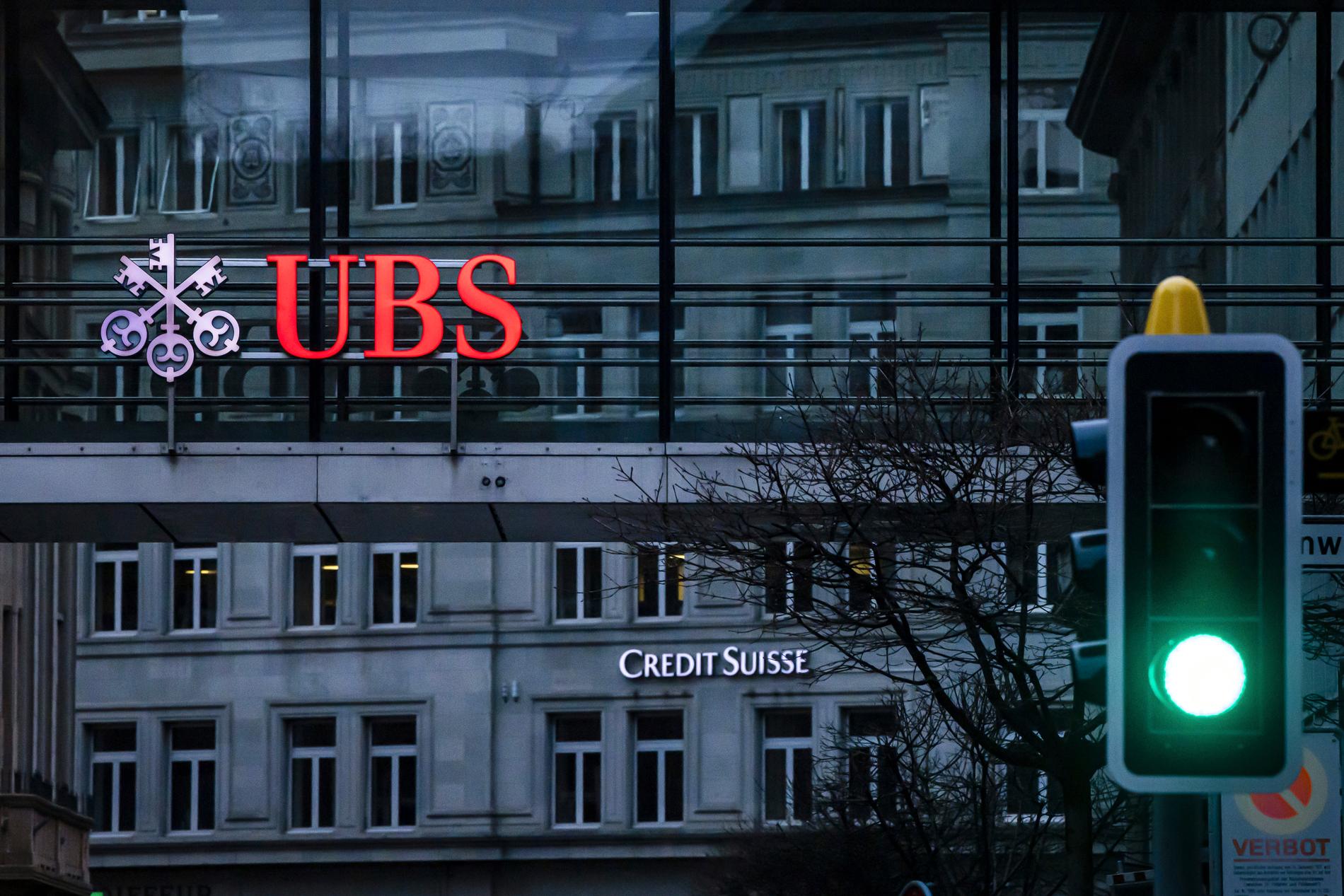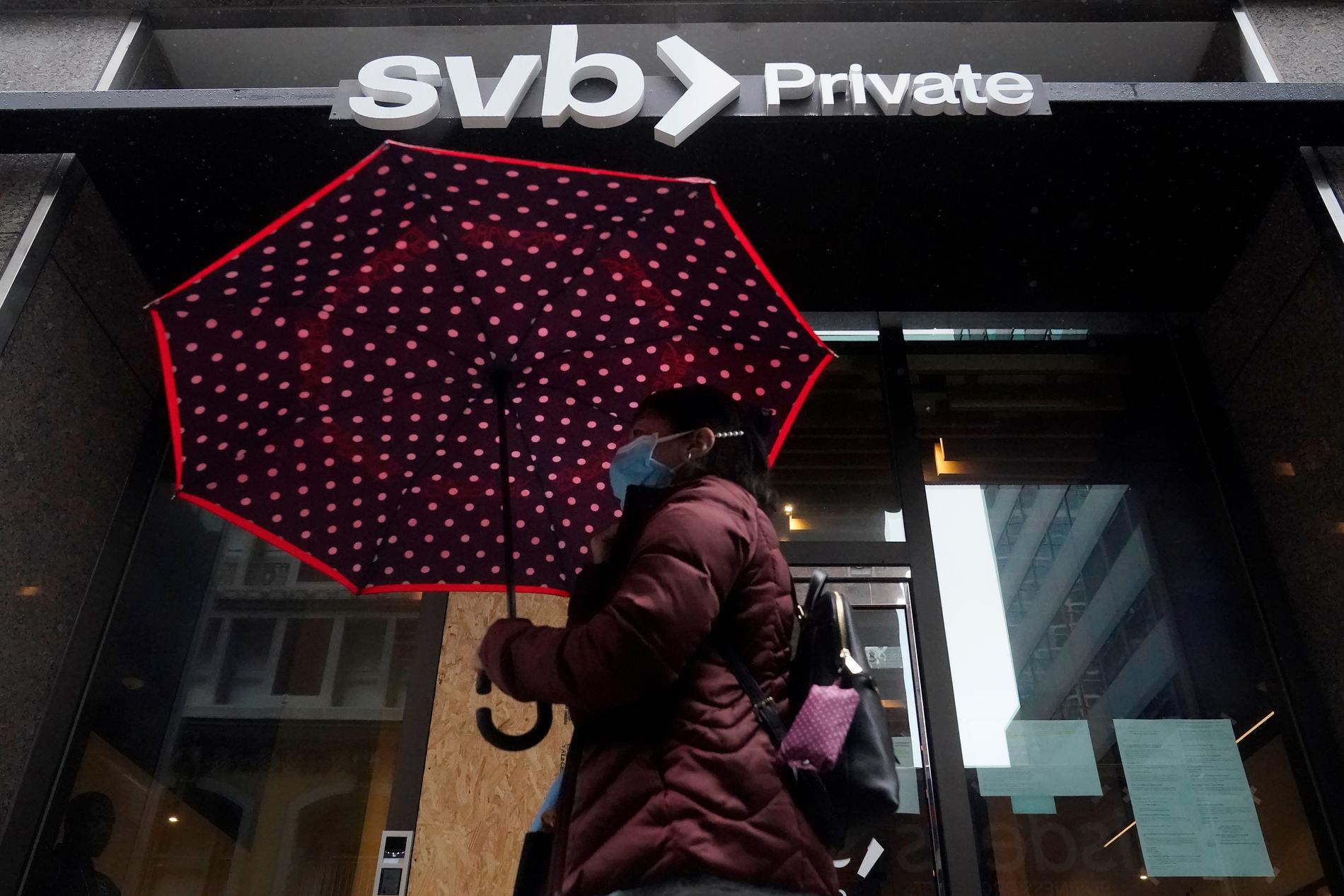Andreas Cervenka
The nightmare: a distrust of the banking system
Published: Less than 2 hours ago
Updated: Less than 2 hours ago
This is a commenting text. Analysis and positions are the writer's.
MY ECONOMY
If 2008 was the crisis of the greedy Wall Street bankers, 2023 looks set to be the fiasco of the bureaucrats.
A series of missteps has triggered the financial world's worst nightmare: a distrust of the entire banking system.
Swedish banks are not immune.
"The world's banks are much safer than in 2008."
If you had a Swiss franc for every time someone in power uttered this mantra in recent years, it would be enough to retreat to an alpine village and slurp eggnog full-time.
The statement contains a sly slip. "Much safer" does not necessarily mean "completely safe".
This has become painfully obvious this past week. Because how else is one to explain that 167-year-old Credit Suisse, which on paper met all the "tougher" requirements introduced for banks, still stood on its ears this weekend?
That's what happened, although technically it happened that the bank was bought by the Swiss competitor UBS. The purchase price, approximately SEK 34 billion, illustrates how deep the bank's crisis is. In its latest financial statements, Credit Suisse valued the bank's assets at over SEK 500 billion.
The deal is in practice a bailout carried out on orders from Swiss authorities and politicians.
Switzerland's central bank promises to lend up to the equivalent of SEK 1,100 billion to the new bank, and the state also issues a loss guarantee of up to SEK 100 billion.
Swiss UBS buys up struggling competitor Credit Suisse. Photo: Michael Buholzer/AP
The question is whether it is enough.
A person who dares to ask for help often gets a pat on the back or a hug.
For a bank, it could mean signing its own death warrant.
After the crash of US Silicon Valley Bank, concerns rose about Credit Suisse, which has a long history of bad deals and took in more money from shareholders as recently as before the turn of the year.
But a major shareholder, Saudi National Bank, declared last week that it will not raise more capital.
That caused Credit Suisse's stock to plummet, and this week the Swiss central bank announced that it would offer the bank the equivalent of SEK 570 billion in loans for "preventive purposes".
Thus the end was near.
The announcement seems to have triggered panic among the bank's customers, who began withdrawing their money. According to the Financial Times, in the order of SEK 100 billion flowed out of the bank every day last week. Without this weekend's rescue operation, it would probably have gone bankrupt.
It was after the crash of Silicon Valley Bank that concerns rose about Credit Suisse Photo: Jeff Chiu / AP
Bank customers voting with their feet is the same phenomenon phenomenon that affected Silicon Valley Bank and Signature Bank in the US.
The solution was that the government guaranteed all customers' money, even those who had more in the account than the 250,000 dollars which is the limit of the deposit guarantee in the USA.
The result was that overnight two of the shakiest banks in the country were transformed into the safest. The state guarantees that no one can lose money.
Paradoxically, safer banks suddenly appear riskier, as protection there still only goes up to $250,000. This increased the risk of a bank run in small and medium-sized banks. Not so successful.
First Republic, where the Swedish pension giant Alecta is an owner, was "rescued" last week by a number of large banks, but nevertheless crashed on the stock market on Friday and fell freely on Monday as well, down 46 percent at 5 p.m. Swedish time.
At the weekend, a trade association for small and medium-sized banks in the US pleaded that unlimited protection for customers must apply to all banks.
That there seems to be concern about a spread of the crisis is shown by the fact that the central banks of the United States, Canada, the European Central Bank and the Swiss National Bank came out on Sunday and announced that they would make it easier for banks to borrow in dollars. The same thing was done in 2008 and during the pandemic.
The price of both gold and bitcoin, which is sometimes described as a kind of alternative to the banking system, has risen sharply in recent days. Former Riksbank governor Stefan Ingves with gold bars from Sweden's gold reserve.
Former Riksbank governor Stefan Ingves with gold bars from Sweden's gold reserve. Photo: Janerik Henriksson/TT
The basic problem is that the entire financial system is very vulnerable after fifteen years of zero interest rates, which caused the debts to grow avalanche-like and many to take big risks. What central banks and politicians did after the 2008 financial crisis was simply to postpone many of the problems until the future.
And the talk that the banks have become so much safer is partly cosmetic.
An example: before the 2008 crisis, global banks in some cases only had 1 to 2 kroner in capital for every hundred Swedish kroner in debt. According to the latest EU rules, the minimum requirement is SEK 3, for the largest banks a little more.
Swedish major banks are on average between 5 and 6 kroner.
A normal industrial company has perhaps SEK 50 or more. Banks are still very risky compared to almost any other business.
Swedish banks are considered very stable and meet all authority requirements with flying colours. But a global banking crisis will also hit Sweden.
Last week, the International Monetary Fund (IMF) published a report on the Swedish financial system and warned that the banks are very exposed to real estate and housing and dependent on being able to borrow money on the international capital market.
If distrust spreads, investors will flee any asset that smells the slightest bit of risk.
Then Sweden is on fire.
The financial crisis of 2023 is far from over.
Facts
UBS and Credit Suisse
UBS is Switzerland's largest bank and one of the world's 50 largest. Has ancient origins, but the bank is the result of several hundred acquisitions and mergers over the years.
The bank is based in Zurich but operates globally. The bank has over 70,000 employees worldwide.
The company is valued today at the equivalent of almost SEK 720 billion, a drop of over SEK 150 billion in just a couple of weeks.
Credit Suisse is Switzerland's second largest bank. It was founded in 1856 and is based in Zurich. The bank has approximately 50,000 employees worldwide.
In one year, the share has lost three-quarters of its value, and the financial statements for 2022 ended with a loss of the equivalent of SEK 84 billion.
The course collapse has taken place after several years marked by scandals, fired managers and legal problems. The annual report for 2022 was recently stopped due to question marks in the financial reporting.




Inga kommentarer:
Skicka en kommentar